
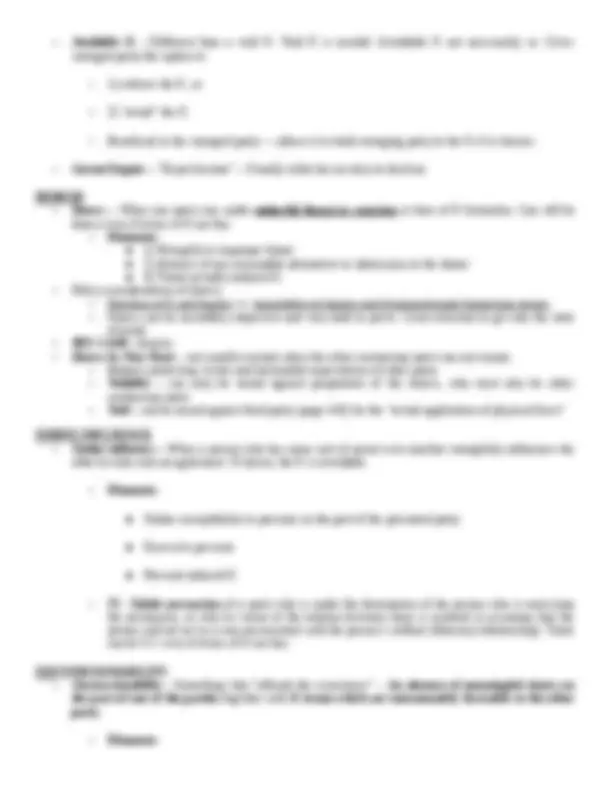
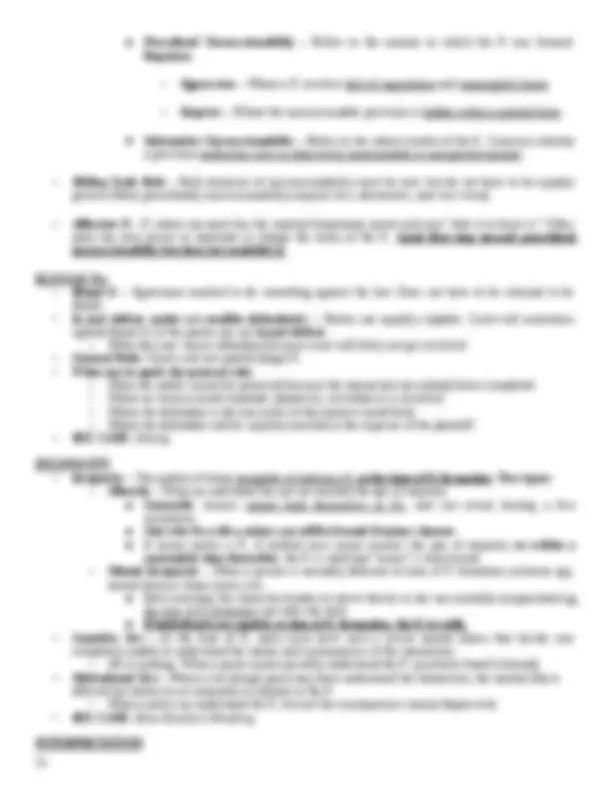
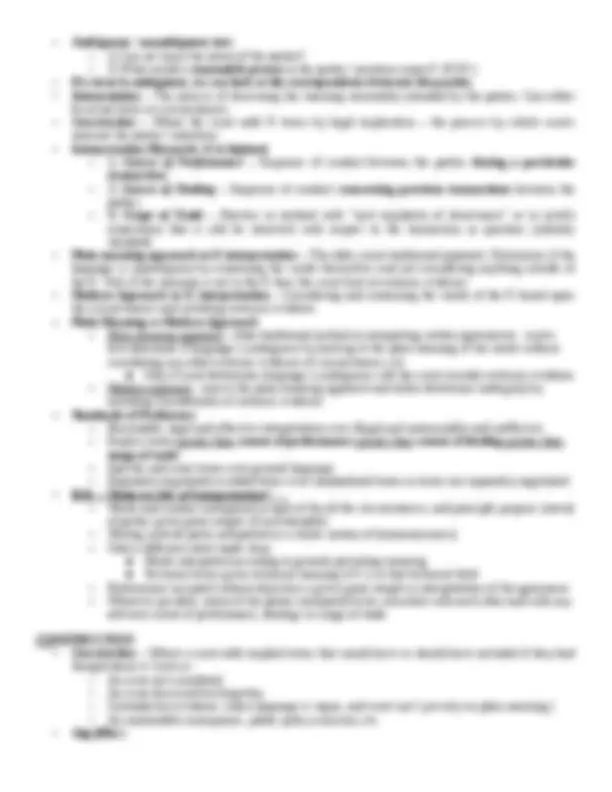
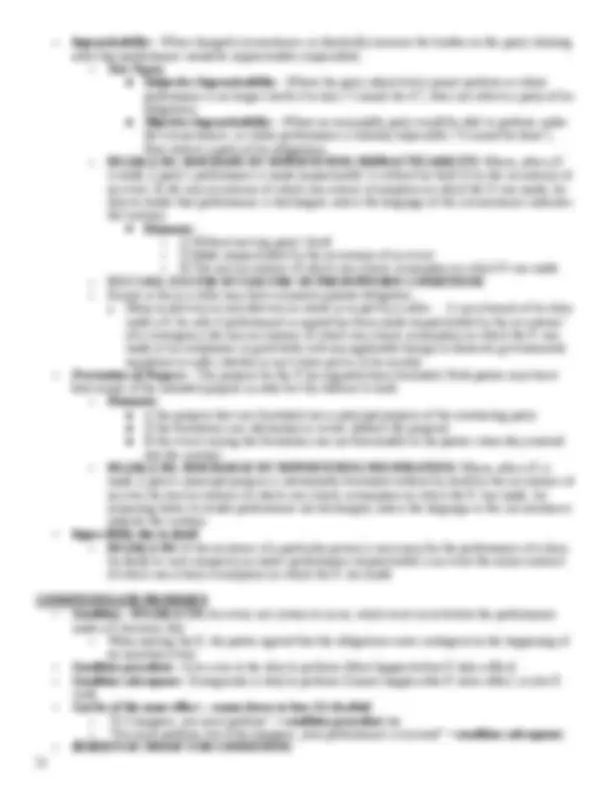
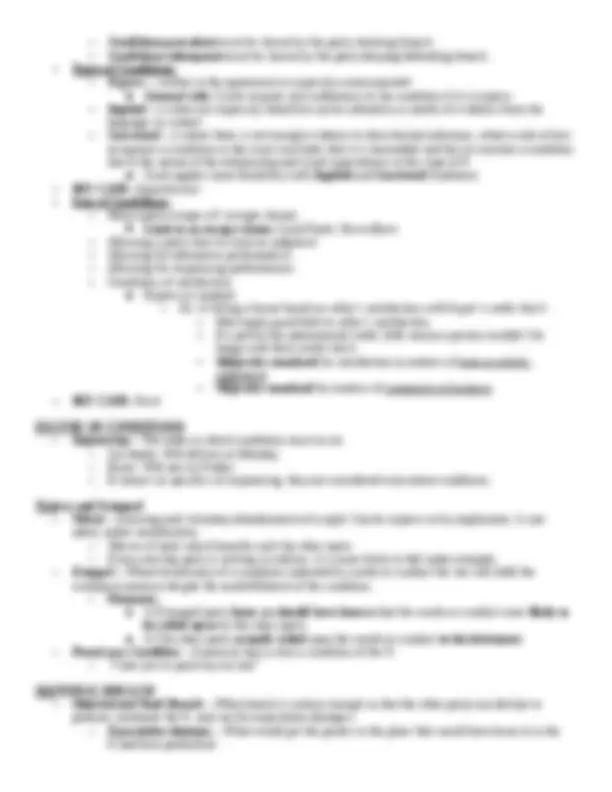

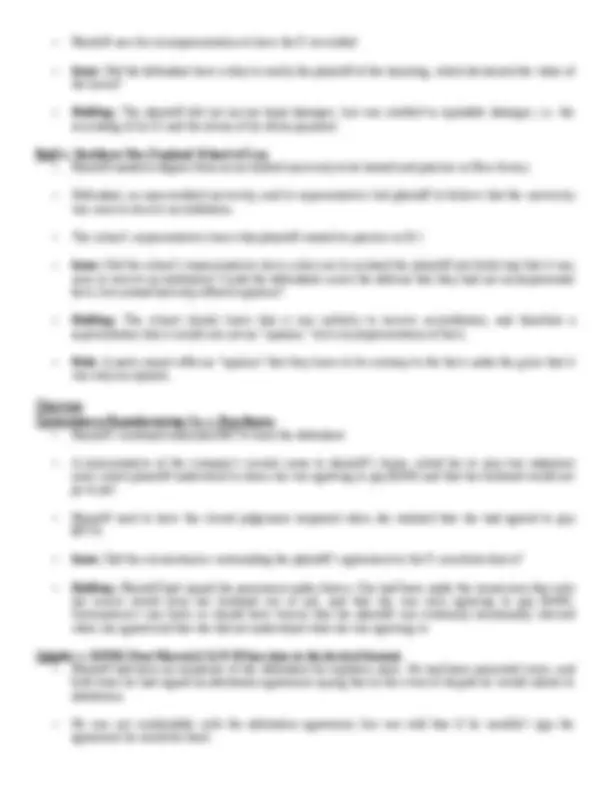
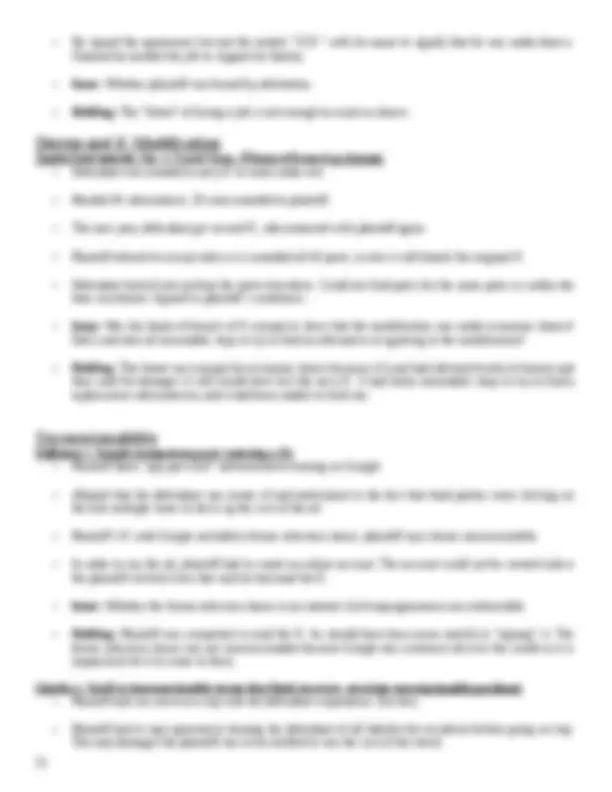
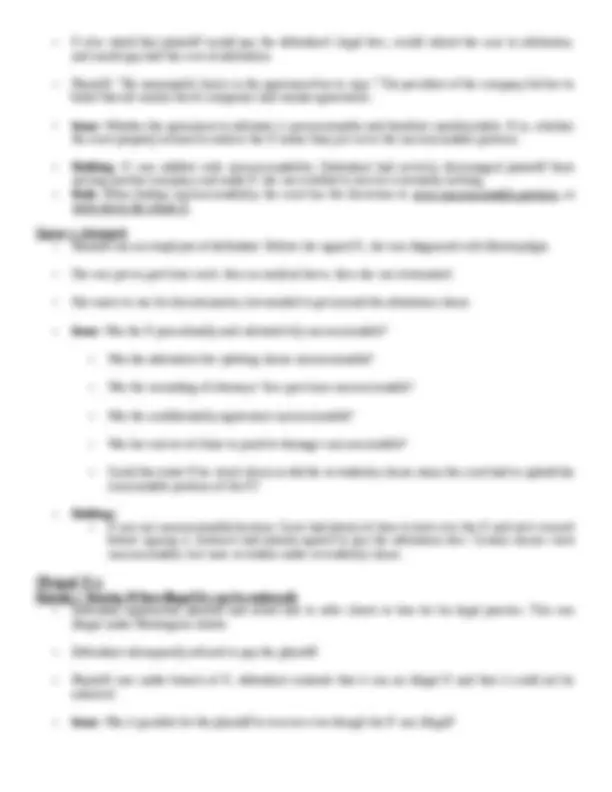
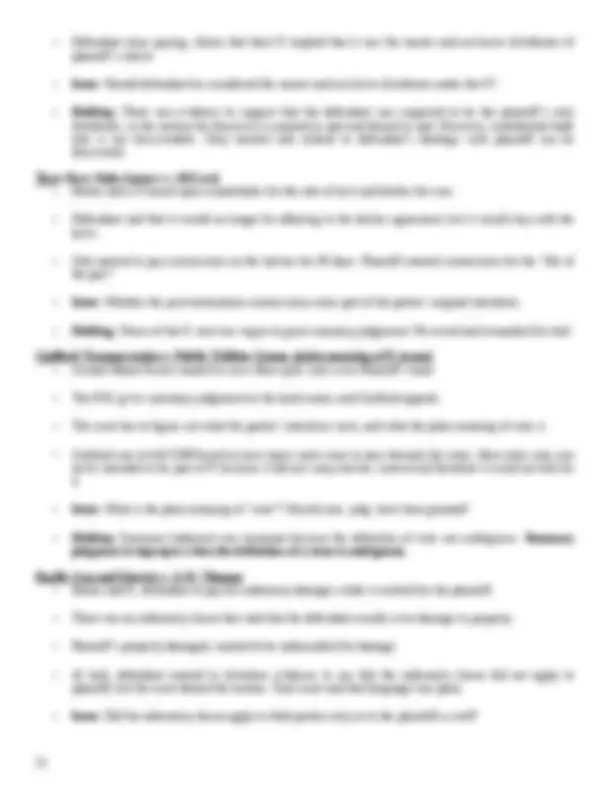
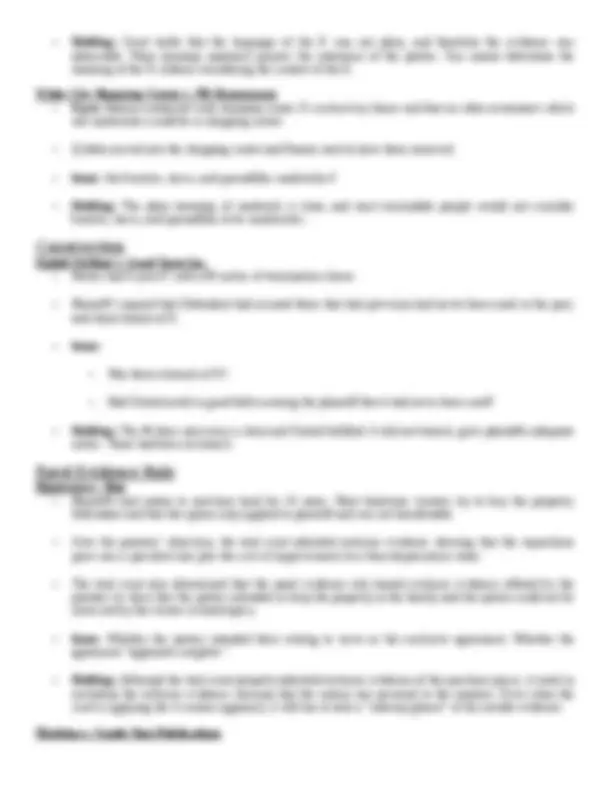
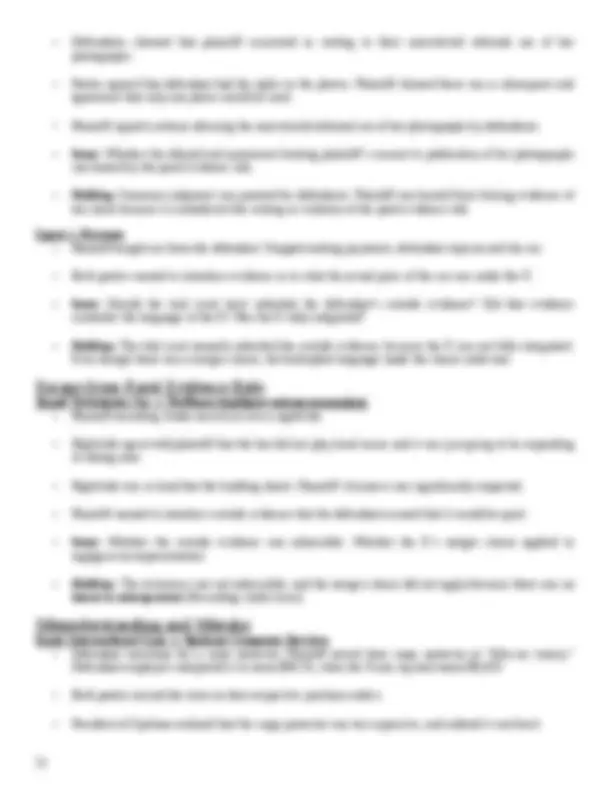
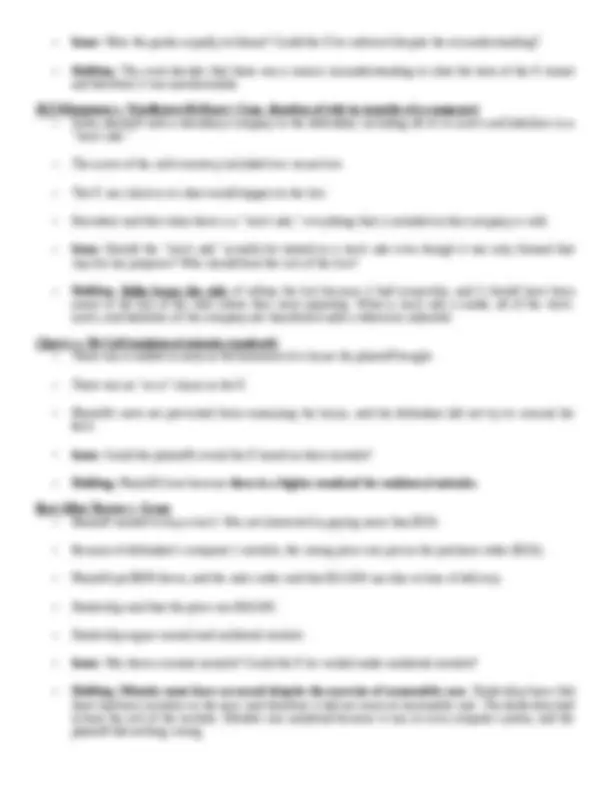
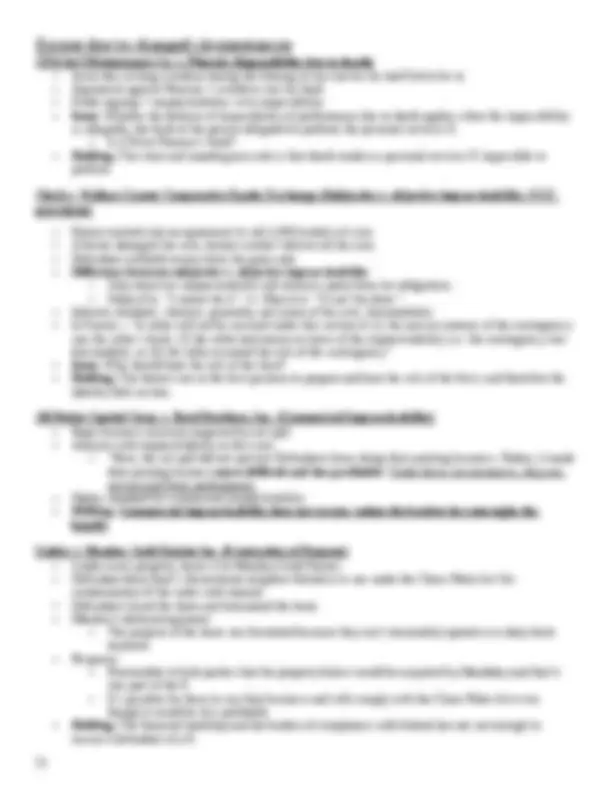
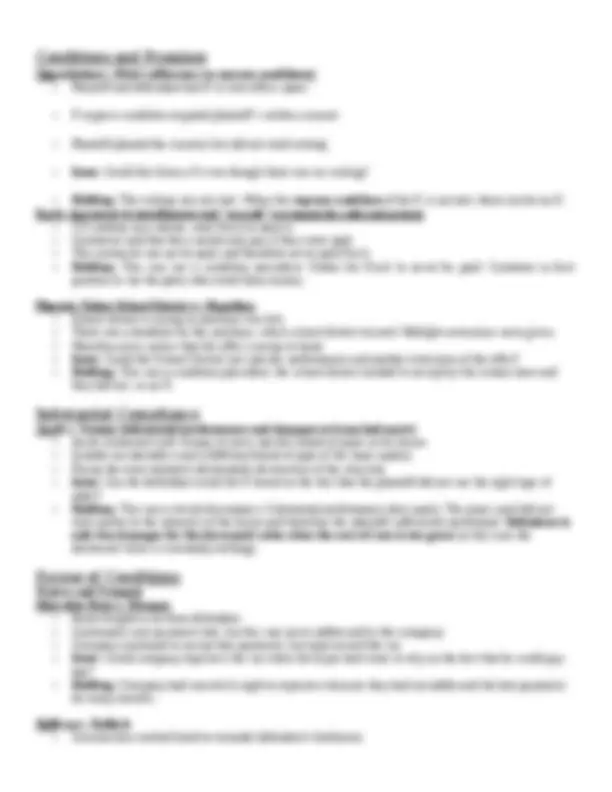



Study with the several resources on Docsity

Earn points by helping other students or get them with a premium plan


Prepare for your exams
Study with the several resources on Docsity

Earn points to download
Earn points by helping other students or get them with a premium plan
Community
Ask the community for help and clear up your study doubts
Discover the best universities in your country according to Docsity users
Free resources
Download our free guides on studying techniques, anxiety management strategies, and thesis advice from Docsity tutors
UCC and R2d terms for entire semester; Terms and Case briefs for midterm
Typology: Study notes
1 / 24

This page cannot be seen from the preview
Don't miss anything!

















Options and Firm Offers Option K – A separate K with separate consideration that makes an offer to enter into another K irrevocable for a time. When offer is irrevocable (exceptions to freely revocable rule):
Unless an exception applies, any attempted revocation of a valid option K is generally ineffective, even if:
Promissory Estoppel
UNJUST ENRICHMENT
POLICING DOCTRINES
21
■ Procedural Unconscionability – Refers to the manner in which the K was formed. Requires:
■ (^) Substantive Unconscionability – Refers to the subject matter of the K. Concerns whether a provision reallocates risks in objectively unreasonable or unexpected manner.
ILLEGAL Ks
INTERPRETATION
21
CONSTRUCTION
■ 1) A mistake
■ (^) 2) of both parties
■ 3) at the time of K formation
■ 4) as to a basic assumption of the K
■ 5) that has a material effect on the agreed exchange of performance
■ In order for the mistake to be a valid defense, asserting party must be shown that the enforcement of the K is unconscionable or that the other party knew or had reason to know of the mistake
CONDITIONS AND PROMISES
21
Drennan v. Star Paving Co. (Promissory Estoppel)
Brooklyn Bagel Boys v. Earthgrains Refrigerated Dough Products (Option and Requirements Ks)
Martin v. Little, Brown, and Co. (K implied both in fact and law and unjust enrichment)
Feingold v. Pucello
Estate of Cleveland v. Gordon
Rodi v. Southern New England School of Law
Germantown Manufacturing Co. v. Rawlinson
Quigley v. KPMG Peat Marwick LLP (What rises to the level of duress)
Austin Instruments, Inc. v. Loral Corp. (Threat of breach as duress)
Feldman v. Google (competent party entering a K)
Lhotka v. GeoExs (unconscionable terms that limit recovery, severing unconscionable portions)
21
Woodman v. Kera LLC
Syncom Industries v. Wood
Foss v. Circuit City (minority)
In Re Seminole Walls & Ceiling Corp.
Farnum v. Silvano
Rycon Specialty Foods v. Wellshire Farms (discoverability it Ks, master and exclusive distributors)
White City Shopping Center v. PR Restaurants
United Airlines v. Good Taste Inc.
Masterson v. Sine
Myskina v. Conde Nast Publications
Lopez v. Reynoso
Sound Techniques, Inc. v. Hoffman (negligent misrepresentation)
Konic International Corp. v. Spokane Computer Services